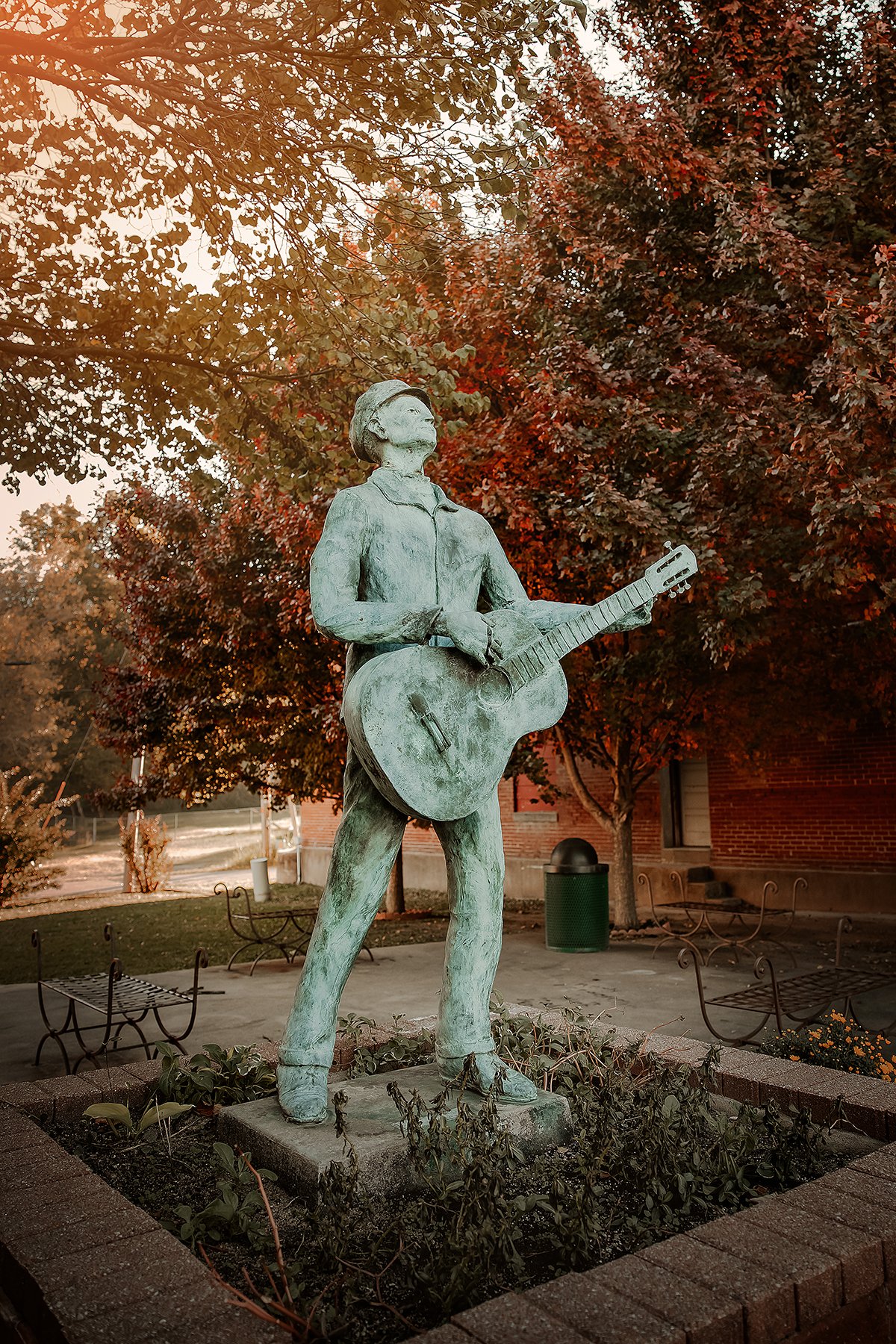Made for you and me.
Historically occupied by the Osage and Quapaw, the area later to be called “Okemah” was assigned to the Muscogee Nation, and more specifically the Thlopthlocco Tribal Town after Indian Removal of tribes from the Southeast United States in the 1830s.
In the spring of 1902, Chief Okemah (Kickapoo) built a bark house in his tribe's traditional fashion. He had come to await the opening of the townsite, which took his name on April 22, 1902. In the Kickapoo language, Okemah means "things up high," such as a highly-placed person, or town on high ground. A post office opened on May 16, and the town was officially incorporated in 1903.
In the town's first week, the following stores were established: four general merchandise, two hardware, one 5 & 10 cent store, three drugstores, four groceries, three wagon yards, four lumberyards, three cafes, one bakery, two millineries, four livery barns, three blacksmiths, two dairies, two cotton gins and two weekly newspapers. There were multiple doctors and lawyers, as well as two hotels, including the three-story Broadway hotel, which set the city apart as an important town in early Oklahoma.
Okfuskee County had been organized at the time of statehood in 1907, and Okemah was chosen by vote as the county seat shortly after.
However, Okemah’s early years carry a dark stain: Laura and L. D. Nelson were an African-American mother and son who were lynched on May 25, 1911, just outside city limits. They had been kidnapped from their cells in the Okemah county jail the night before by a group of almost 40 white men, and among other horrors, Laura and her son, L. D., were hanged from a bridge over the North Canadian River. The lynching was attended by locals and even photographed and made into a postcard, which was common practice at the time. Although the district judge convened a grand jury, the killers were never identified.
The Independent wrote on May 25, 1911, that "…there is not a shadow of an excuse for the crime," and later called it a, "terrible blot on Okfuskee County, a reproach that it will take years to remove."
One year later, on July 14, 1912, Woodrow “Woody” Wilson Guthrie was born to Nora and Charles Guthrie. Woody would grow up to be one of the most significant singer-songwriters in American history. His work focused on themes of American socialism and anti-fascism. His music includes songs such as "This Land Is Your Land", written to oppose the American exceptionalist song "God Bless America," and has inspired several generations both politically and musically.
Songwriters such as Bob Dylan, Johnny Cash, Bruce Springsteen, John Mellencamp, Pete Seeger, Jerry Garcia, Jeff Tweedy, and Sixto Rodríguez have acknowledged Guthrie as a major influence on their work. He frequently performed with the slogan "This Machine Kills Fascists" displayed on his guitar.
Every year on his birthday, Okemah hosts The Woody Guthrie Folk Festival, better known as “Woodyfest.” For the festival’s founding, the Woody Guthrie Coalition commissioned a local Muscogee Indian sculptor to cast a full-body bronze statue of Guthrie and his guitar, complete with the guitar’s well-known inscription: “This machine kills fascists.” The statue, sculpted by artist Dan Brook, stands along Okemah’s main street, right in the heart of downtown.
Following in the musical footsteps of Woody Guthrie, Okemah is home to a host of famous musicians, including Grammy-nominated Americana artist John Fullbright, Evan Felker of The Turnpike Troubadours, and country singer Shawna Russell.
Today, Okemah is a bustling home to more than 3,000 diverse and active citizens. Throughout the year, there are many adventures to be had in the area, including festivals, farmer’s markets, swimming, boating, hunting, fishing, and camping. Okemah is home to a 9-hole golf course, as well as a variety of restaurants and live music venues.





